The Young Academy Groningen welcomes seven new members
The Young Academy Groningen welcomes seven new members. The Young Academy Groningen (YAG) is a group of talented, enthusiastic and ambitious early-career researchers from various disciplines at the University of Groningen (UG) and the University Medical Center Groningen (UMCG). Members share a passion for science and scholarship and its broader impacts on academia and society.
Members of the Young Academy Groningen generate and elaborate on their ideas together with researchers spanning all disciplines, forge interdisciplinary ties and set up joint projects. They contribute to scientific policy and engage in activities with the broader public. Over the past year, due to COVID-19 regulations, these activities have mainly taken place online but have nonetheless been very successful in bringing early-career researchers together to discuss ideas regarding the Rewards & Recognition programme and to explore interdisciplinary collaborations.
Lustrum
This year is a special one, as the YAG is celebrating its five-year anniversary (lustrum), which also means saying farewell to the founding members who have contributed to the success and standing of the YAG since its inception. The YAG looks forward to many more years of working with the University community, the Board of the University and with other young academics in the Netherlands to represent early-career researchers, and is excited to welcome the new cohort of members. The lustrum celebration and the official appointment of the new members will take place in September 2021.
The new members
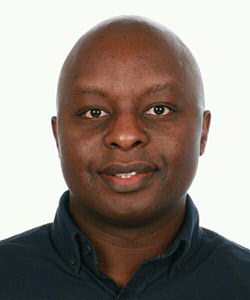
Dr David Cheruiyot (Faculty of Arts)
I am an assistant professor at the Centre for Media and Journalism Studies (CMJS). My research focuses on the transformation of professional journalism in today’s digitally networked and datafied world. I have a specific interest in non-journalistic actors, for example, mainstream media critics or producers of “real” vs ”fake” news. My research broadly aims to understand how such actors shape traditional journalism practice and the global society. I was previously a post-doctoral researcher in a project funded by the Dutch Research Council (NWO) Aspasia programme researching the changing landscape of global conflict (news) reporting. I completed my PhD in Media and Communication Studies at Karlstad University, Sweden, and I have also worked as a journalist.
I am excited to join the community of outstanding scholars of the Young Academy Groningen. I look forward to contributing to the YAG’s mission to foster a more inclusive and diverse (global) scientific community that is critical in today’s increasingly interdependent world. I specifically would like to promote conversations on the internationalization of science and discussions about solutions to inequalities in academic knowledge production.
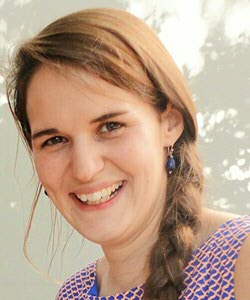
Dr Léonie de Jonge (Faculty of Arts)
I am an assistant professor in European Politics & Society at the Faculty of Arts. In my research and teaching, I seek to understand the rise and normalization of the far-right in the twenty-first century. I am particularly interested in the question of why right-wing populist parties are more successful in some countries and regions than in others.
With the mainstreaming of the far-right, liberal democracy and its educational foundations have become contested. As a result, academic freedom as well as university autonomy over teaching and governance have come under threat. Academic freedom is not just essential for guaranteeing high-quality research and teaching in higher education, but also for the functioning of democracy at large. But what exactly do we mean by academic freedom? Who is responsible for achieving, maintaining and protecting academic freedom? And what limits can legitimately be imposed? As an incoming member of the Young Academy Groningen, I look forward to creating a platform to exchange views on this pressing societal issue.
Beyond this matter, I am passionate about promoting and advancing diversity in academia and tackling endemic job insecurity as well as casualized employment contracts, particularly for early-career researchers. I am excited to join a network of young, motivated researchers to build a more inclusive and sustainable higher education system.
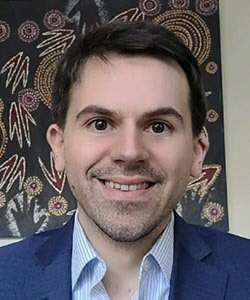
Dr Benjamin Leruth (Faculty of Arts)
I am an assistant professor in European Politics & Society at the Faculty of Arts. I also act as the coordinator of the UG-wide research network on democracy and governance, and as coordinator of the BA in European Languages and Cultures. Prior to joining the University of Groningen in 2019, I worked at the University of Canberra (Australia), the University of Kent (UK) and the University of Bath (UK).
My research focuses on three sub-disciplines: democratic innovations, social policy and European integration. Over the past few years, I was involved in designing mini-publics where participants were asked to deliberate on the types of benefits and services that their governments should offer in a generation’s time. In addition to editing two major volumes (a handbook on differentiation in the European Union and the Routledge Encyclopedia of European Studies), I am currently working on a research project unravelling support for welfare chauvinism across Europe.
I very much look forward to collaborating with like-minded researchers who are willing to shine a light on hidden talent within the University and to defending the interests of all early-career academics at the local, regional and national level. In particular, I will seek to contribute to ongoing debates regarding access to research funding to promote access to solid, structural baseline funding for early-career researchers.
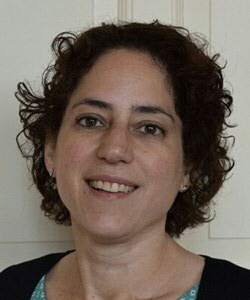
Dr Esther Metting (Faculty of Economics and Business)
I am excited about my appointment and I look forward to working with other YAG researchers. My background is in psychology and epidemiology and I work as an assistant professor at the Faculty of Economics and Business. My main research focus is the exciting field of health and technology (eHealth). Unfortunately, not everyone can benefit from the benefits of eHealth due to poor health and digital literacy. This is a problem because these vulnerable groups have a poorer health status on average and would benefit most from eHealth programmes. In my daily work, I use knowledge from epidemiology, behavioural and implementation sciences to improve the uptake of eHealth schemes. The overall aim of my research is to make eHealth accessible for everyone.
Since the COVID-19 pandemic, I have been involved in several COVID-19 projects including the evaluation of the CoronaMelder for the Ministry of Health, Welfare and Sport and the evaluation of the COVID-19 rapid-testing centre for teaching-related activities in Groningen.
The large amount of fake news and conspiracy messages have taught me that there is a need for objective and understandable scientific information among the public. Together with other YAG members, I would like to reduce the gap between scientists and the public by presenting research in an understandable way.
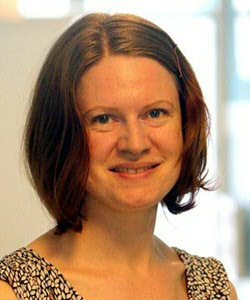
Dr Muirne Paap (Faculty Behavioural and Social Sciences)
I was born and raised in the province of Groningen, and earned a Master’s degree in Psychology from the University of Groningen. My research interests and love of Scandinavian languages led me to Norway, where I lived for five years. I am currently employed as an assistant professor at the Faculty of Behavioural and Social Sciences, and hold a part-time position at Oslo University Hospital. My research focuses on the development and evaluation of psychological and educational tests as well as test score interpretation. More specifically, I study how to make tests more personalized and adaptive using computer-based algorithms and statistical modelling.
Diversity and equality have always been close to my heart. Living and working in another country has deepened my understanding of these topics, and inspired me to reflect on and value aspects of my own culture as well. As a member of the YAG, I aspire to use my experience to increase the interconnectedness at our University and to help build and strengthen bridges across faculties, cultures, research fields and genders. Furthermore, I would like to help pave the way for early-career researchers to become less dependent on professors and department chairs. I strongly believe that the recognition of personal strengths should be independent of one’s place in the academic hierarchy, and the assignment of professional roles and duties should be based on merit rather than rank.
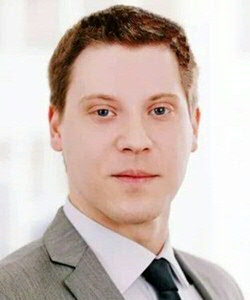
Dr Karsten Schulz (Campus Fryslân)
My name is Karsten Schulz and I am an assistant professor of Governance and Innovation at the University of Groningen Campus Fryslân. My current research focuses on the governance of climate adaptation and examines how digital technologies such as blockchain and artificial intelligence can support societal responses to climate change. I obtained my PhD at the Center for Development Research at the University of Bonn, Germany. I am now coordinating the new Master’s specialization in Climate Adaptation Governance at the University of Groningen.
Before I joined Campus Fryslân, I worked as a government consultant in the field of digital democracy and as a researcher for a number of international organizations and climate change-related research projects, particularly in West Africa and Southeast Asia. I am also a research fellow of the Earth System Governance Project and a member of the International Advisory Board for the Future Earth research initiative ‘Sustainability in the Digital Age’.
My main motivation for joining the Young Academy Groningen is to advance interdisciplinary collaboration in an inspiring intellectual environment, and to represent the interests of early-career researchers. During my time away from the office, I enjoy travelling and practicing martial arts as well as discovering new digital developments.
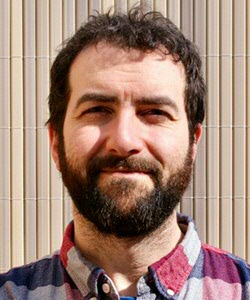
Dr Marcello Seri (Faculty of Science and Engineering)
I am a mathematician, working at the crossroad of dynamical systems, analysis and geometry. This gives me the opportunity to explore both abstract mathematics and potential applications: I enjoy looking outside my own patch of land and engaging with colleagues from other fields, mathematical or otherwise. After a break from academia working as a software developer, I joined the Bernoulli Institute for Mathematics, Computer Science and Artificial Intelligence in 2018 as an assistant professor, where I am exploring connections between flows in singular geometries and their quantization.
Since my arrival, I have been participating in many of the activities organized by the Young Academy and I have witnessed the mark that they are making through their work. I am thrilled to join as a new member and to be able to directly contribute to its efforts. Having lived in four countries with my family and having worked in both academia and industry, I would like to contribute to making the University more inclusive and multicultural and to defend the value of research as a whole, be it pure, applied or interdisciplinary.
| Last modified: | 29 March 2021 1.24 p.m. |
More news
-
21 November 2024
Dutch Research Agenda funding for research to improve climate policy
Michele Cucuzzella and Ming Cao are partners in the research programme ‘Behavioural Insights for Climate Policy’
-
20 November 2024
Gerard van den Berg appointed as member of the Academia Europaea
Professor Gerard van den Berg had been appointed as member of the Academia Europaea, the European Academy for Sciences, Humanities and Letters.
-
15 November 2024
Faculty of Economics and Business and Dutch Central Bank Announce New "Klaas Knot Lecture Series"
The Faculty of Economics and Business (FEB) of the University of Groningen and De Nederlandsche Bank (DNB) are pleased to announce the launch of the annual “Klaas Knot Lecture Series” on international economic policy.
